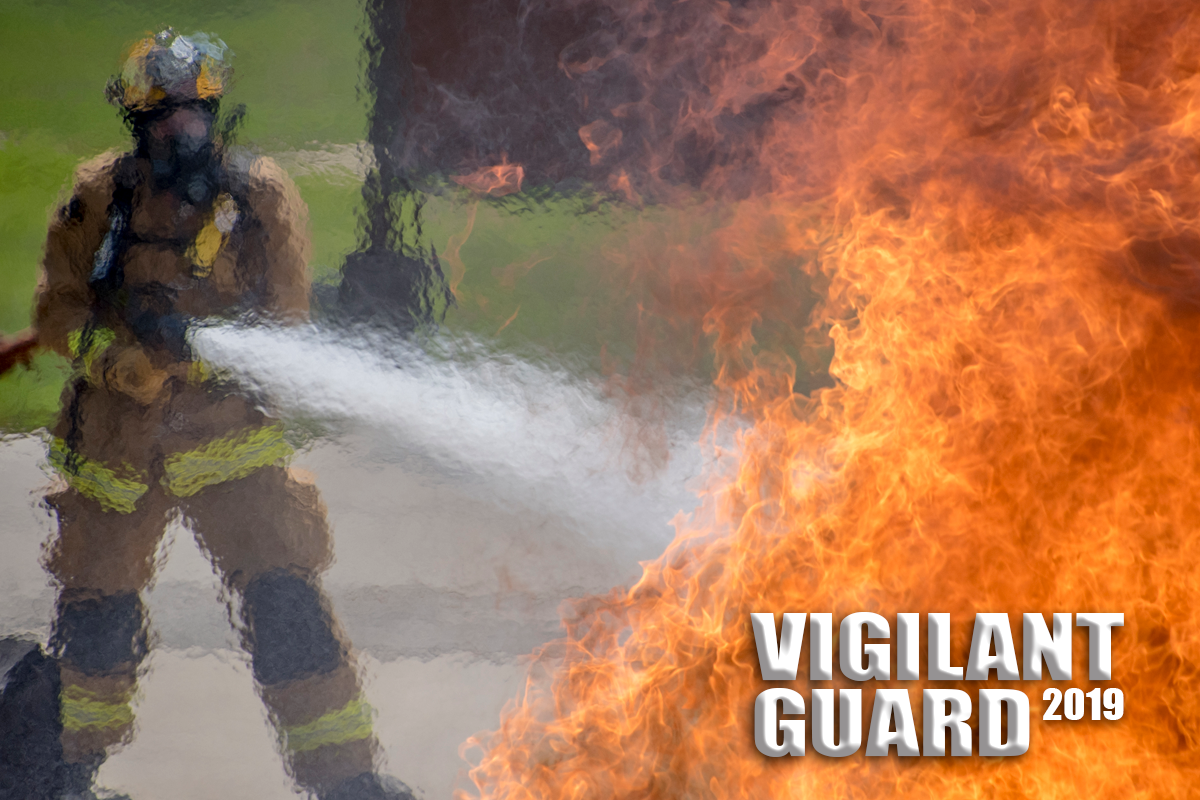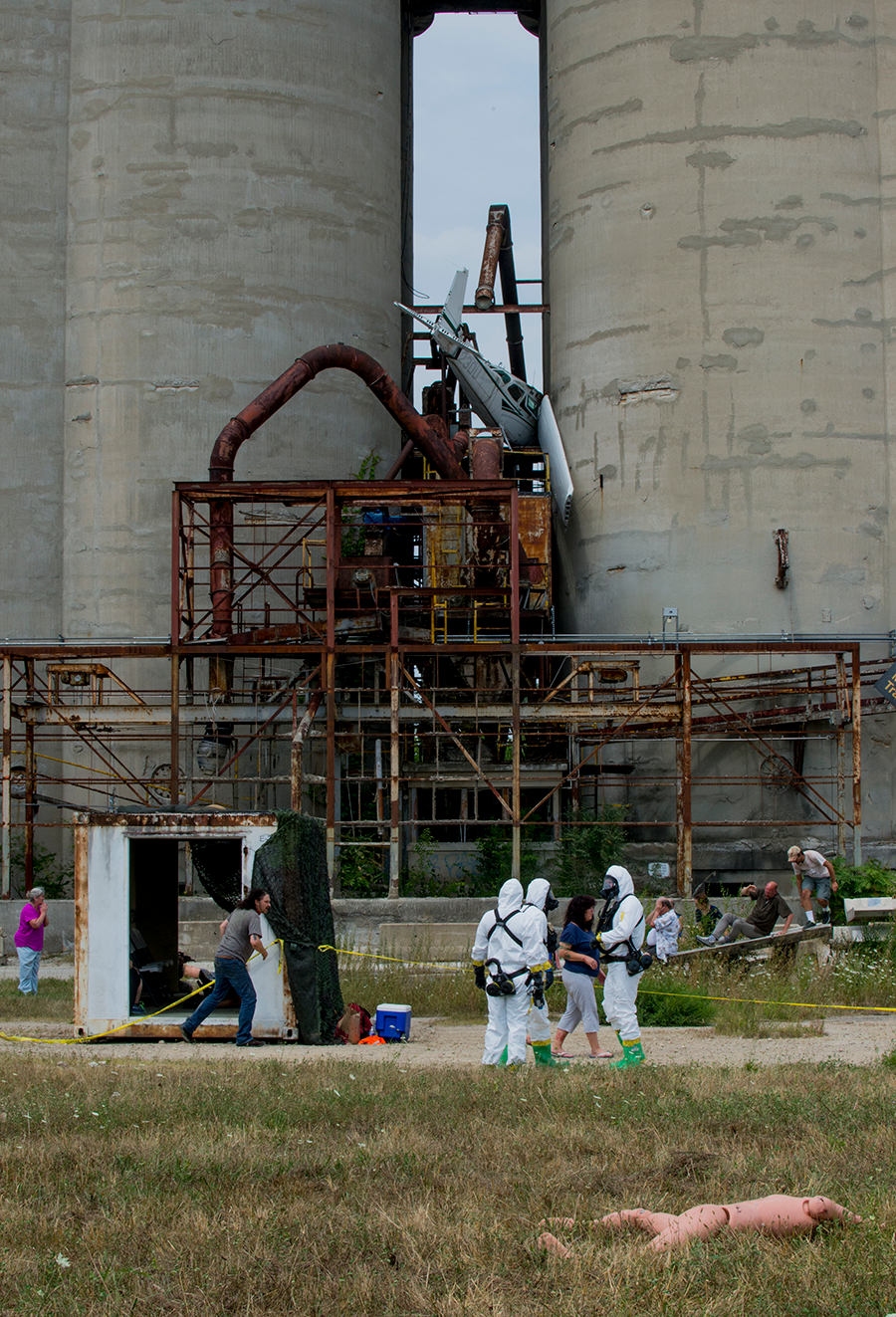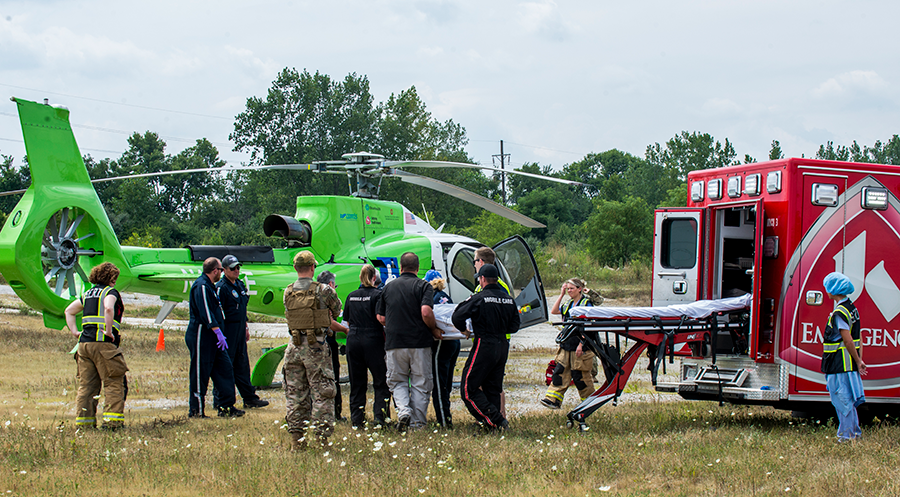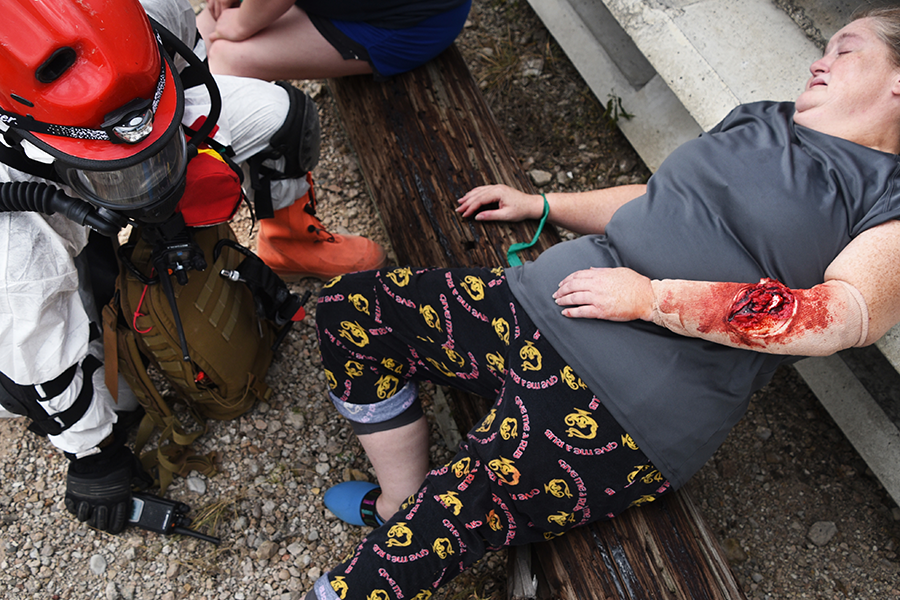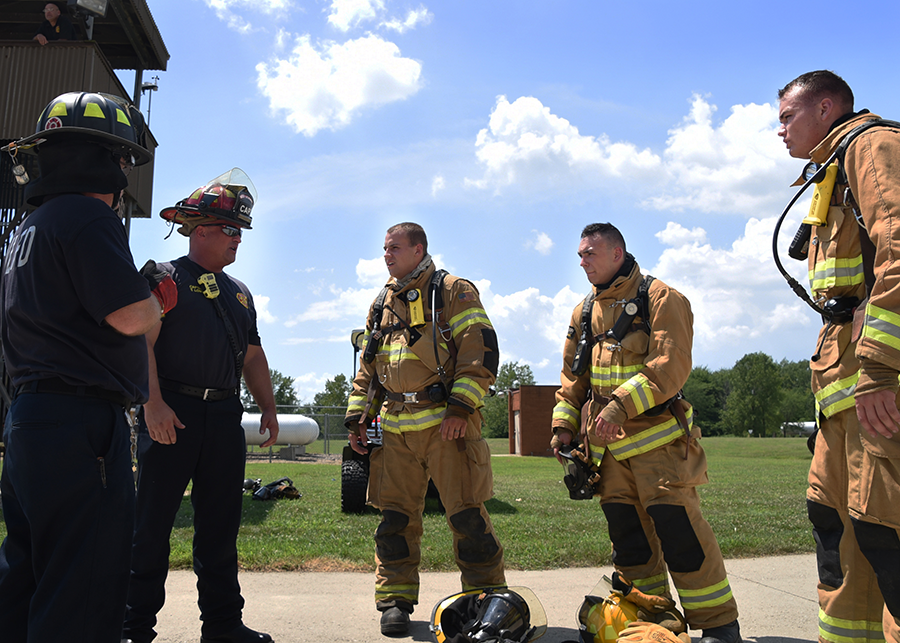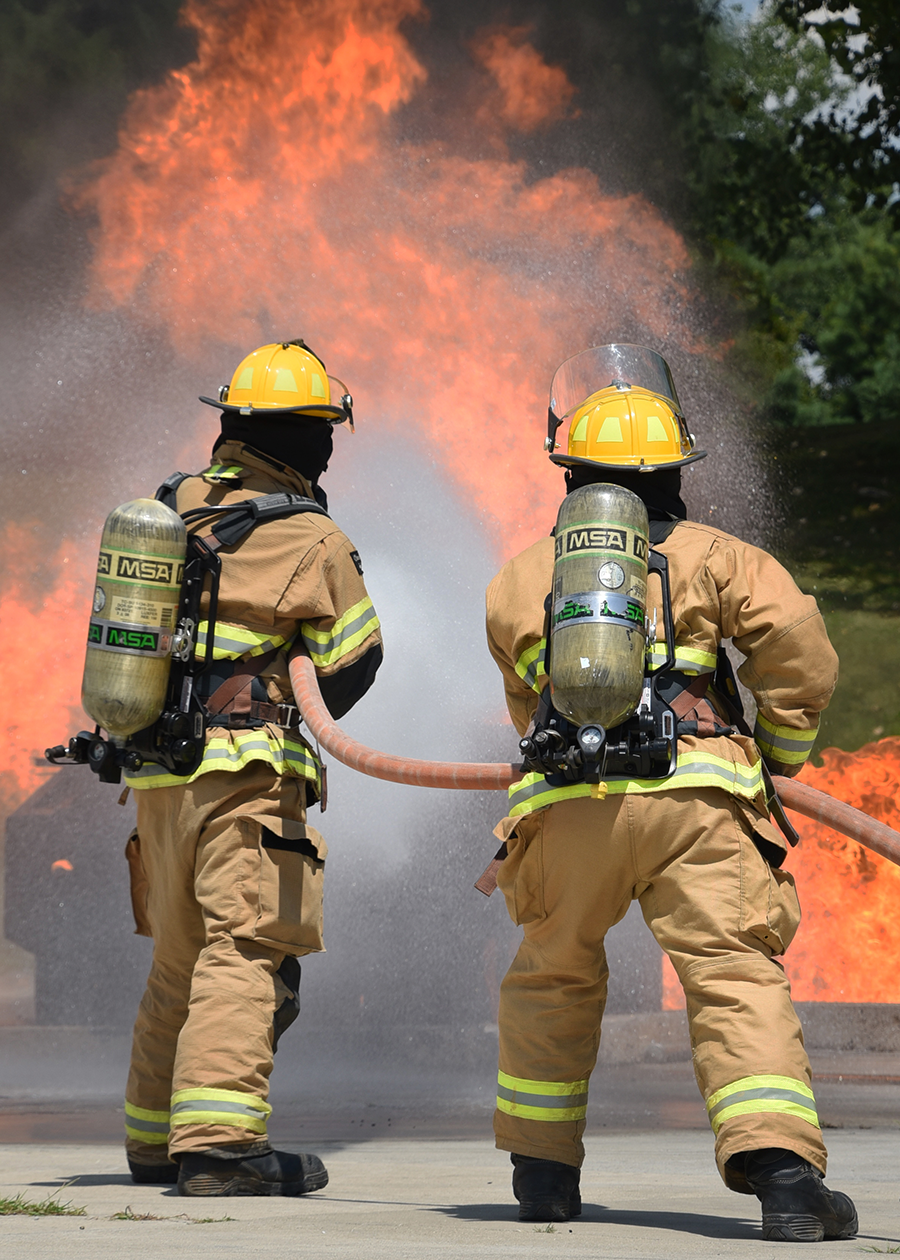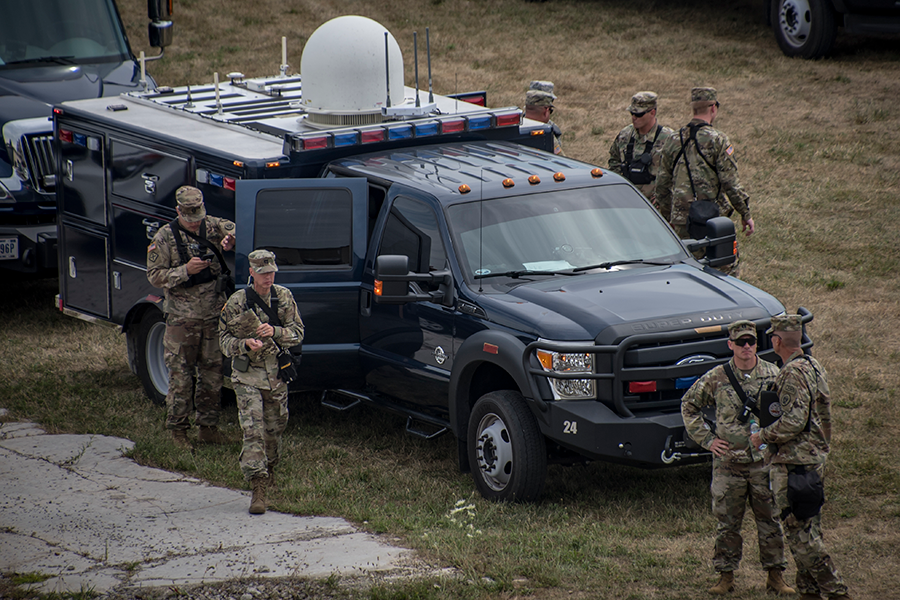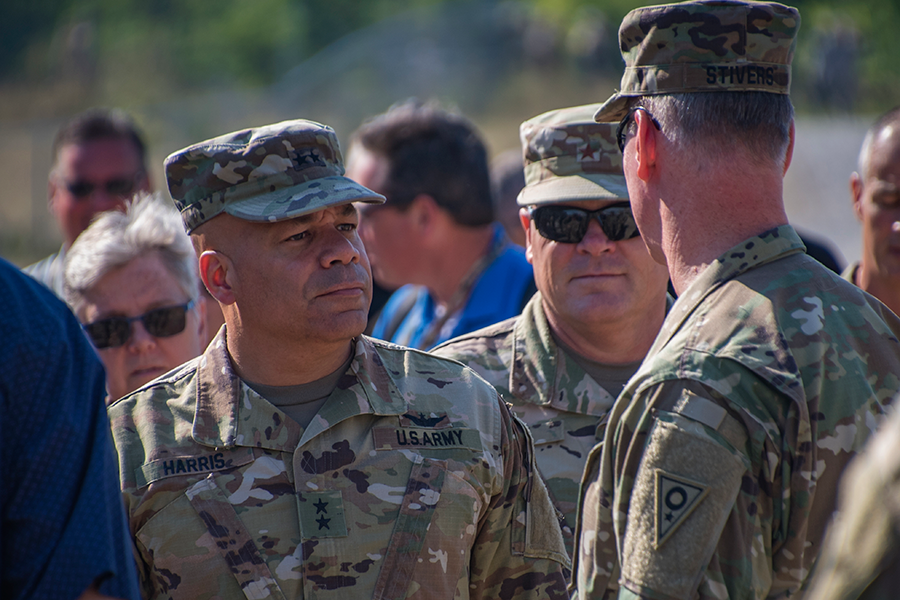Vigilant Guard 19-4 comes to a close in Ohio:
Largest disaster response exercise in state history provides valuable training for 3,000 personnel from 90 organizations
Story by Staff Sgt. Michael L. Carden, Ohio National Guard Public Affairs
COLUMBUS, Ohio (08/12/19)
It was a week of long, hot days where first responders ended each day covered in dust and sweat. Through the stress and simulated carnage, it didn’t matter what municipality, state or agency they worked for, they were just trying to save lives.
Vigilant Guard 19-4 — a national-level disaster response and emergency management exercise involving more than 3,000 personnel and over 90 local, state and federal agencies and co-sponsored by U.S. Northern Command (USNORTHCOM) and the National Guard Bureau — tested Ohio’s ability to respond to various disaster simulations, challenging those involved to their very limits.
“I see Vigilant Guard as our responsibility to the citizens of Ohio; it puts us in the field in situations we can’t replicate anywhere else,” said Maj. Gen. John C. Harris Jr., Ohio adjutant general. “They are some of America’s finest trained for the worst-case scenario.”
One of the main goals of Vigilant Guard is to bring together local first responders, state-level assets like the Ohio Emergency Management Agency and the Ohio Department of Transportation, National Guard units, and national agencies like the Federal Emergency Management Agency. Members from the Arkansas, West Virginia, Colorado and New York National Guards also participated.
“There are always things you can learn from working with your peers and your partners,” said Lt. Col. Aron Sacchetti, a project officer with the New York National Guard and one of the planners for a Vigilant Guard exercise in New York in 2020. “For New York state, Ohio is part of our backup plan. It’s written into our planning. It is an invaluable experience that helps ensure that we are all prepared to respond in the event of a really bad day for the citizens of any state.”
First responders faced a variety of scenarios, from a plane crash and a train wreck, to a terrorist attack with a “dirty” bomb, to a cyberattack that crippled power and water services.
“We design the exercise to stress the state so much that they have to reach out for resources,” said Lt. Col. Christopher Burns, one of the exercise planners with USNORTHCOM. “Ohio is a very robust state when it comes to emergency services, so it takes a large amount of inputs into the exercise to get them to the point where they have to reach out to other agencies.”
Though this Vigilant Guard iteration — the largest exercise of its kind in the state’s history — pushed responders to their limits, the exercise planners were very pleased with the results and what it means for the citizens of Ohio.
“It has been a great success,” Burns said. “That was true for both the responders on the ground, but also for those in the command center coordinating the response. These exercises save lives. The skills that are obtained, by both military and civilian (participants), build those processes and build those skills so that those first responders are much more effective when they face a real emergency.”
